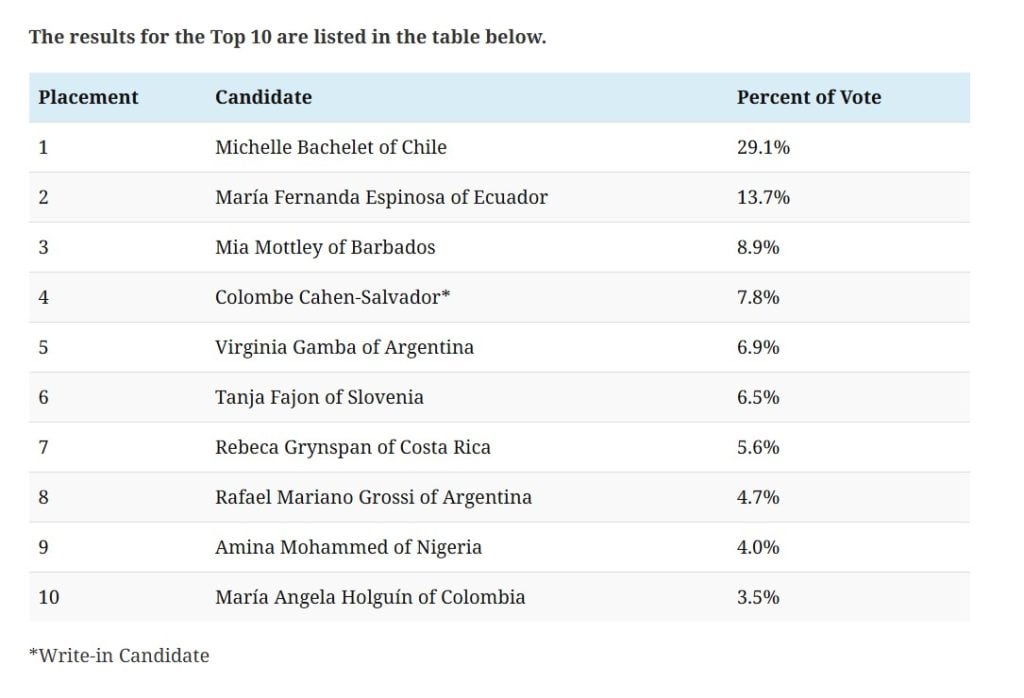Original article: Bachelet se impone como opción para Secretaría General de la ONU con 29,1%, según encuesta
The recent survey conducted by the specialized outlet PassBlue positioned Michelle Bachelet at the forefront with 29.1%, more than double the support of her closest opponent, Ecuador’s María Fernanda Espinosa (13.7%). In third place is Barbados’ Prime Minister, Mia Mottley (8.9%).
Write-in votes also made an impact, with French activist Colombe Cahen-Salvador securing 7.8%; other spontaneous mentions, including Francesca Albanese, Jacinda Ardern, and Sigrid Kaag, fell below 1%.

Why «Bachelet for UN Secretary-General 2026» Emerges as the Favorite?
Bachelet’s leadership in the PassBlue survey—a key reference in United Nations coverage—enhances her international profile and political viability as the contest develops, which relies not only on diplomatic balances (Security Council and General Assembly) but also on public signals. For global and regional audiences, «Bachelet for UN Secretary-General 2026» encapsulates her extensive experience as a former President of Chile, former Executive Director of UN Women, and former High Commissioner for Human Rights.
Methodology and Context: A Snapshot in Time
The survey—informal and aimed at gauging perceptions among specialized readers—was conducted from October 18 to 26, 2025. PassBlue had previously captured preferences in 2024, when Bachelet also led the way. Although not an official mechanism of the UN system, such surveys effectively map opinion climates within the diplomatic, academic, and public policy communities.
Beyond media snapshots, the formal race has already begun with public nominations from Michelle Bachelet (Chile), Rebeca Grynspan (Costa Rica), and Rafael Mariano Grossi (Argentina). In 2026, the selection of the new UN leadership will pass through the Security Council, which recommends to the General Assembly the name of the candidate to appoint. In that arena, both regional support and the ability to build consensus on critical issues (peace and security, humanitarian crises, climate, AI governance, and development financing) will play a pivotal role.



